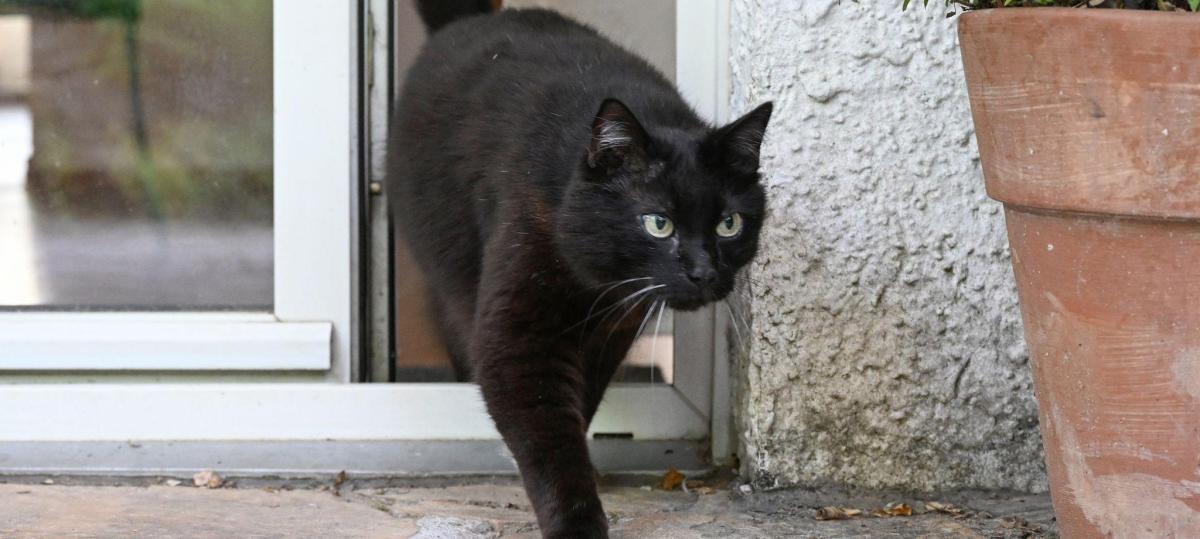Cat free speed or housing? Expert council for cat owners

New cat owners are faced with a fundamental decision: free access or housing? Ilona Wojahn from the German Animal Welfare Association helps, explains how to find out what fits your own living and life situation: « In most cases, free-handing means that cats can get contact with fellow species and are therefore also exposed to infection. In addition, care should be taken to ensure that the cat has already got used to its surroundings before it can go outside. Freelgeles in particular should be examined regularly on parasites such as ticks, fleas or worms.
The animals should receive free access after the castration at the earliest. « Castrated hangover less tends to fight and don’t move so far from their home, » explains Wojahn. The expert recommends chipping and registering the animal. « If an animal is found, every veterinarian and animal shelter can read the chip and find the owner in the pet register, » explains the expert.
Do you have to get a cat used to the free access?
Free access only makes sense if the cats are not exposed to dangers and themselves do not pose any danger to other animals. The animal should get freewheel at the earliest after four to six weeks. « You should be there and watch them at the first explorations of the surroundings. Even on the first trips, she should always be given the opportunity to get back into the house if she is startled, » advises Wojahn. Halter could link feeding with call signals, to which the animal can also react if it is outdoors. « Fixed feeding times are also helpful, » said Wojahn.
When does the freedom not represent an option
Not all cats can go outside. If the apartment is, for example, on a busy main street, the free -range can be fatal. However, if the cat has a strong urge to freedom that cannot be covered in the apartment, an accompanied free handle on a cat leash can also be a solution. But: « Not every cat can be put on like this, » says Anna-Lena Busch from the German Animal Welfare Association.
According to Busch, cats who can interact with the surroundings due to medical impairments should not go into the freedom. In rural areas there is also a risk that cats that are found at a certain distance from the next residential building can also be targeted by a hunter. « In most federal states, the shooting of these pets is permitted according to the applicable hunting laws under certain circumstances, » said Wojahn.
Legal situation in free -running cats
Curious cats can hardly be conveyed that they can only be in their own property. Forays in the neighboring garden are legally tolerated, even if the neighbor does not like it. Revier fights that lead to injuries, scratches on the car roof, appetite for neighboring goldfish and the legacies in the neighboring flower and vegetable beds are often the subject of clashes that, according to the expert, often employ lawyers. « The legal situation is vague here. In principle, according to the BGB, the animal owner is liable for all damage that its pet causes, but this cannot always be proven, » said Wojahn.
In order to prevent unwanted visit to the cat, there are natural scoring measures such as heavily fragrant plants. « This includes lavender, peppermint or the famous, piss-dich plant », « says Wojahn. The spying on bed or coffee grounds is also supposed to keep cats from scratching. « Sand boxes for children should be covered because cats like to choose their business, » said Wojahn.
Pure housing only under certain conditions
You should only keep an adult cat in the apartment if she has never experienced. « In cat puppies, at least one couple should always be allowed to move into the apartment or house. So they have players, social contacts, can cuddle together or clean each other, » explains the expert. It is important for the animals that the apartment offers enough space. The cats should be available in several rooms scratch, retreat and sleeping as well as increased lying areas and hiding places.
« Halter have to deal with housing cats more so that they do not become sick or thick due to boredom and too little movement, » said Wojahn. If possible, networked balconies or terraces are ideal, so that the animals still get a small piece of freedom.






